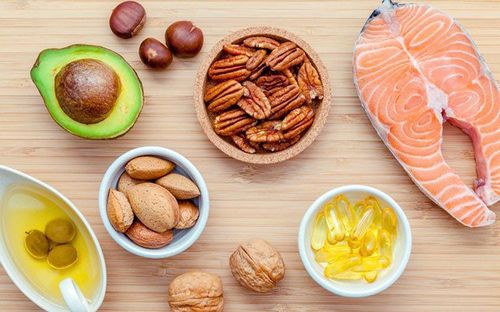This article is professionally reviewed by Dr. Hồ Thị Hồng Tho, a Neonatologist at the Neonatal Department, Pediatric-Neonatology Unit, Vinmec Phu Quoc International General Hospital.
Babies starting at 6 months of age enter the teething phase, which can cause irritability, fever, loss of appetite, and even weight loss. For parents, each mealtime becomes not just a concern but a source of anxiety. So, what should parents do when their teething baby refuses to eat?
1. The babies refuse to eat while teething
Around six months old, babies start developing their first teeth. Their gums become swollen and cracked in preparation for these “new friends,” leading to uncomfortable symptoms like inflammation, redness, pain, excessive drooling, rashes around the mouth, fever, diarrhea, and more. These symptoms explain why teething babies lose interest in eating, feel fatigued, irritable, and cry frequently.
At this stage, babies lose interest in eating altogether. Mealtimes become a genuine fear for them, and if not cared for properly, they might lose weight. For parents, a baby refusing to eat while teething is an alarming concern, as all previous strategies to coax the child into eating may no longer work.
2. Nutritional tips for teething babies
Feeding a teething baby requires parents to understand the child’s current condition and patiently coax them during meals. Because the child is uncomfortable and in pain, they are more likely to become irritable, easily upset, and resistant to eating if forced. Therefore, parents should avoid strict or harsh methods to get their child to eat, as this will only make the baby associate mealtime with negative feelings.
To address the concern of babies refusing to eat during teething, pediatric nutrition experts recommend:
• Prepare soft and liquid foods: Soft, pureed, or liquid dishes like porridge, soups, and broths are ideal for babies refusing to eat due to teething. These foods are easier to swallow and require less chewing, reducing discomfort on their sensitive gums.
• Avoid overly hot or cold foods: Foods that are too hot or cold can irritate the child’s sensitive mouth and hinder the healthy development of newly erupting teeth.
• Include calcium-rich foods: Calcium is essential for a baby’s overall development, especially during teething. Parents should prioritize foods like eggs, milk, cheese, seafood, and beans.
• Ensure adequate hydration: Along with milk, provide the child with plenty of water to replenish lost fluids due to fever and crying. Adding fruit juices can supply essential vitamins. Fluids also help soothe swollen, red gums.
Make meals visually appealing: Since teething babies often refuse to eat, parents should incorporate all four major food groups and include their child’s favorite dishes to stimulate appetite. Dividing meals into smaller portions and increasing the frequency can help prevent weight loss in teething babies.

3. Additional tips for caring for teething babies
When caring for a baby who refuses to eat during teething, parents should spend more time comforting their child, who is enduring pain, irritability, and discomfort. Gentle soothing actions like patting their back, cuddling, talking to them, or playing games can help strengthen the bond and ease the baby’s distress.
Teething babies often drool excessively as a natural way to cool and soothe their gums. Caregivers should regularly clean the baby’s mouth to prevent excessive drooling from causing allergies or even infections.
Lastly, parents can gently massage their baby’s gums and teeth to relieve pain and discomfort. Be sure to thoroughly wash your hands before doing so to prevent introducing bacteria into the baby’s mouth.
If a baby experiences prolonged appetite loss due to teething, resulting in poor nutrient absorption or slow growth, parents should consider adding supplements containing lysine, essential trace elements (e.g., zinc, chromium, selenium), and B vitamins to meet the child’s nutritional needs. These essential vitamins also support digestion, enhance nutrient absorption, and improve appetite.
Parents can use natural-origin functional foods and dietary supplements, ensuring that improvements occur gradually over time. Avoid combining multiple supplements at once or changing products frequently, as this may overwhelm the baby’s digestive system and lead to adverse effects. Consistent care and patience are key.
For more helpful information about baby care, visit vinmec.com regularly.
To arrange an appointment, please call HOTLINE or make your reservation directly HERE. You may also download the MyVinmec app to schedule appointments faster and manage your reservations more conveniently.








